Vocabulary development Writing Worksheets for Ages 3-9
10 filtered results
-
From - To
Enhance your child's vocabulary with our engaging Vocabulary Development Writing Worksheets, designed specifically for ages 3-9. These worksheets incorporate fun activities that foster language skills, helping young learners expand their word bank while igniting their creativity. Each worksheet features vibrant illustrations and age-appropriate tasks that encourage kids to express themselves through writing. From simple word matching to creative sentence formation, our resources are perfect for reinforcing vocabulary in a playful way. Whether at home or in the classroom, these worksheets will promote language development and make learning enjoyable. Unlock your child’s potential and watch their confidence soar!
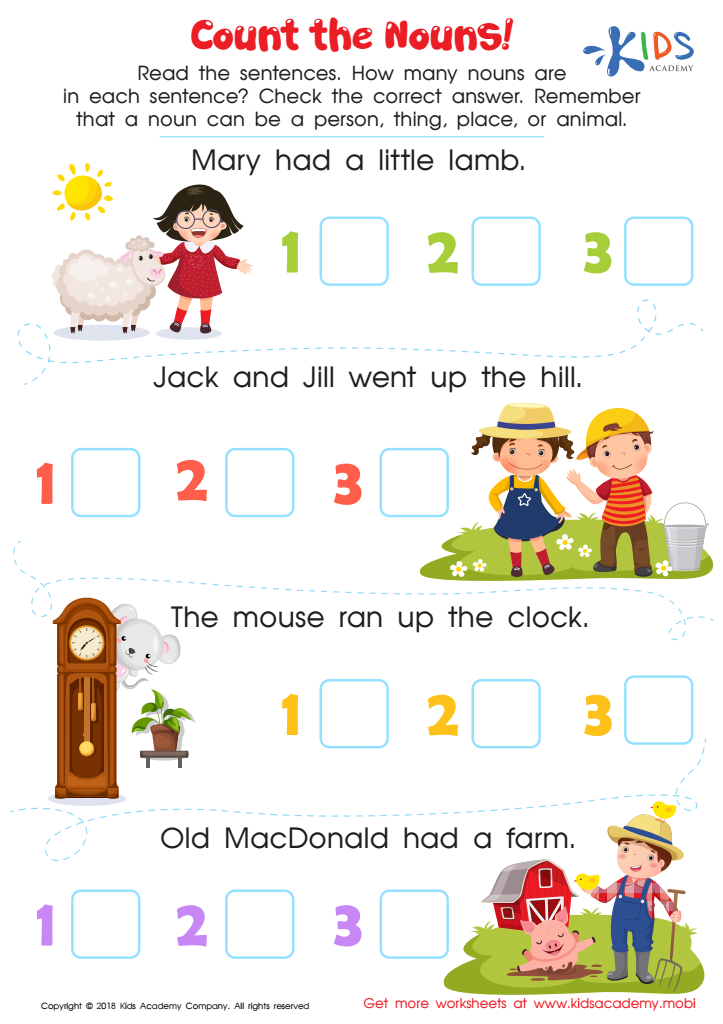

Count the Nouns Worksheet
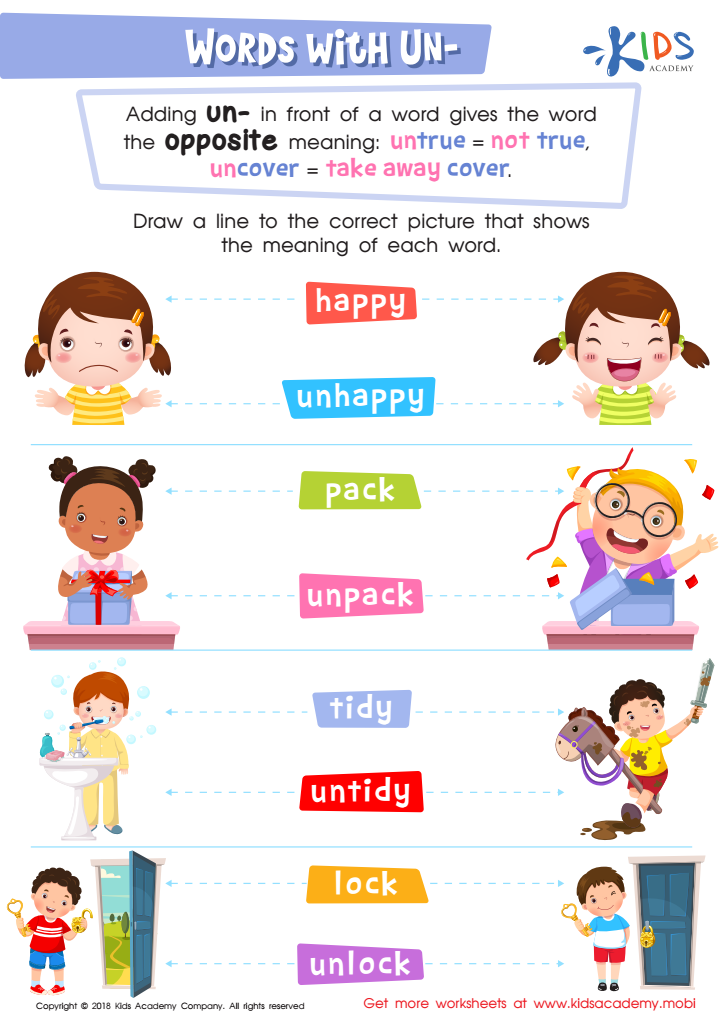

Words with Un– Worksheet
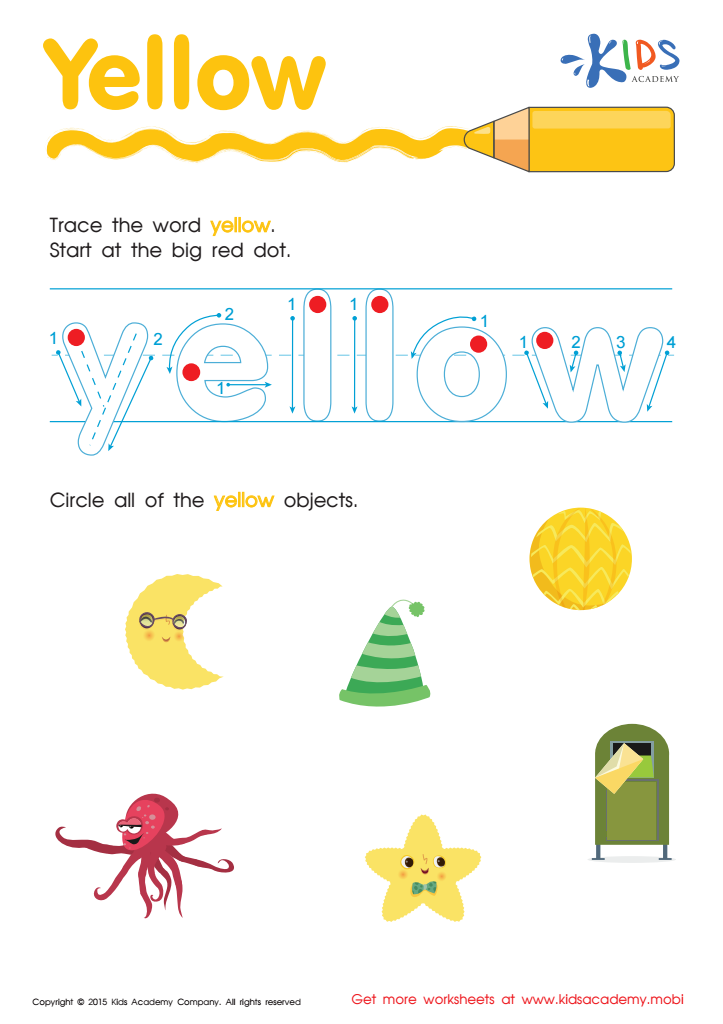

Yellow Tracing Color Words Worksheet


Phonics and Word Recognition: Assessment 3 Worksheet
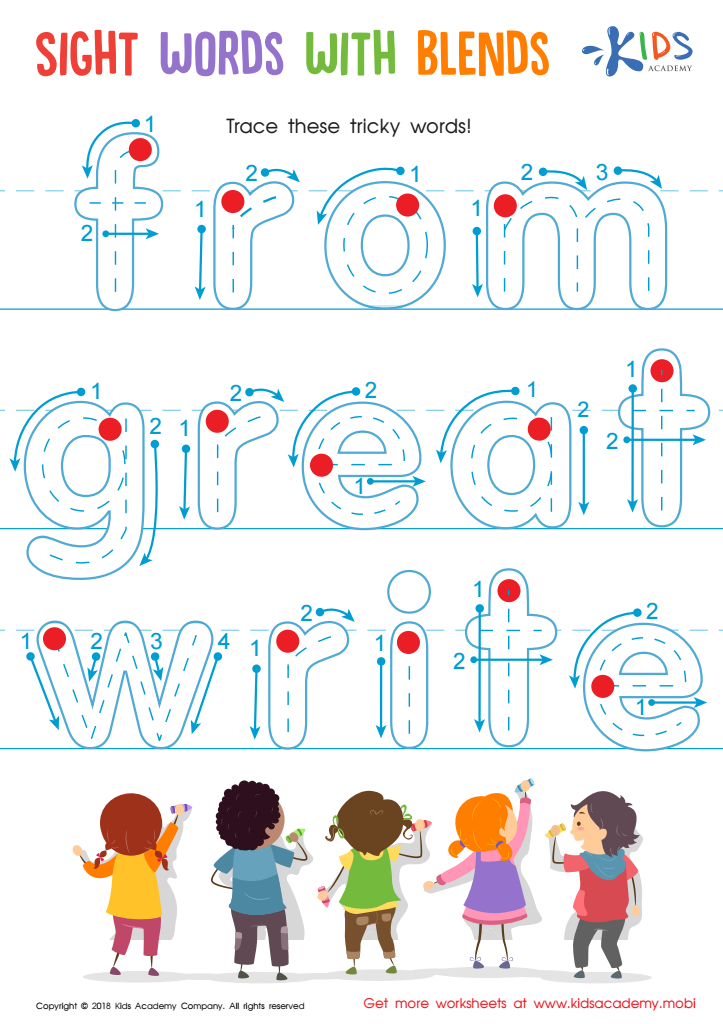

Sight Words with Blends Worksheet
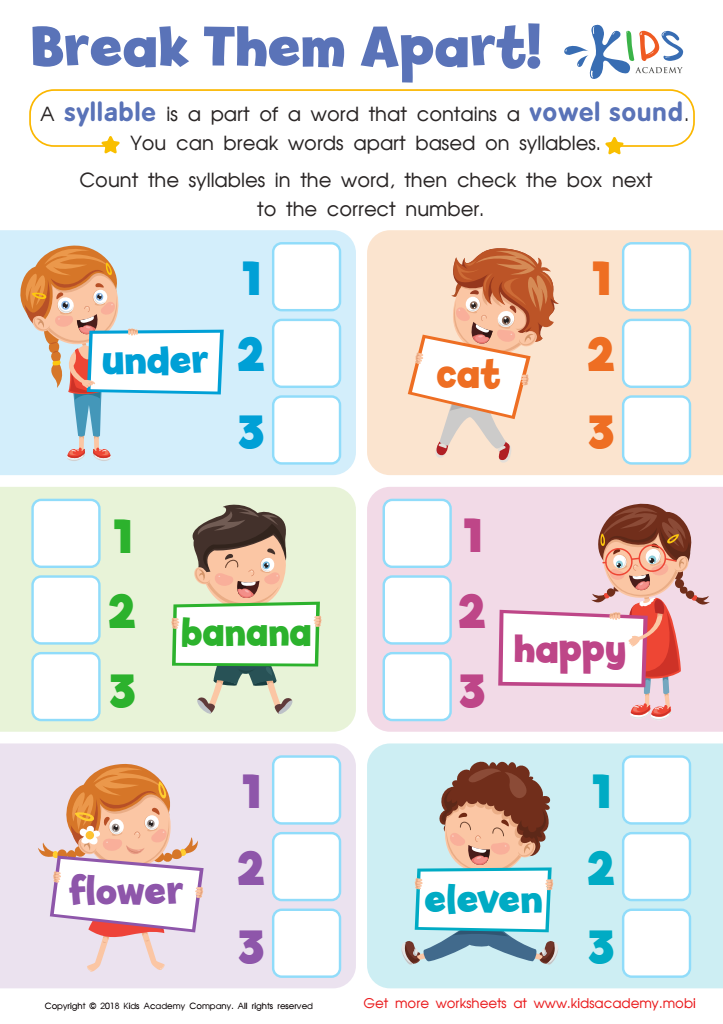

Reading: Break Them Apart Worksheet
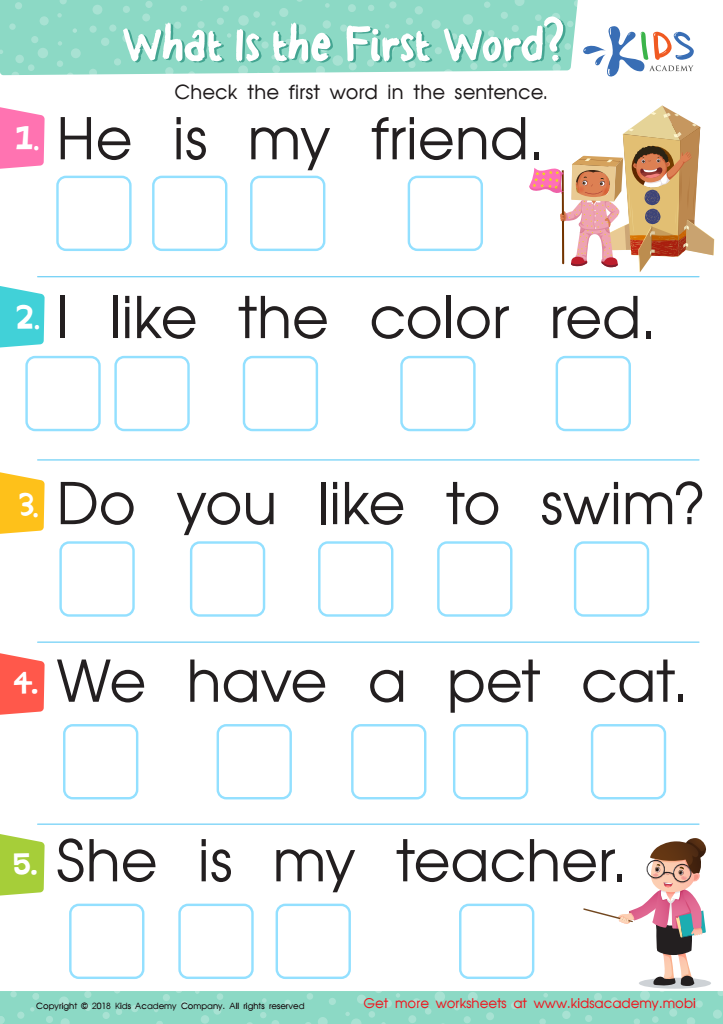

What is the First Word? Worksheet
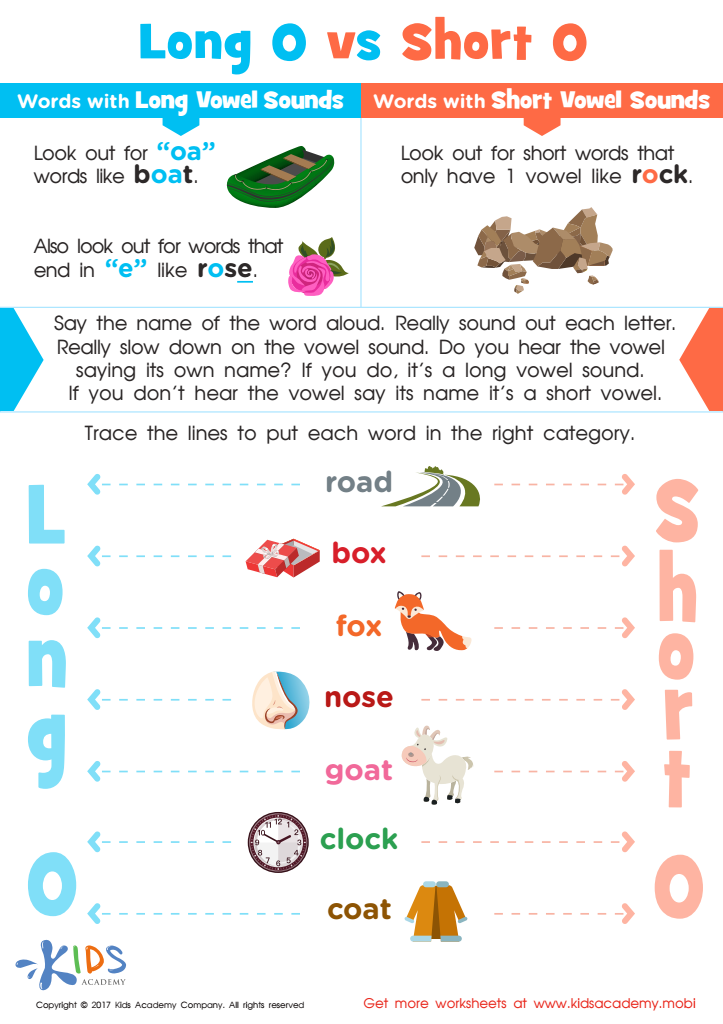

Long and Short Vowel O Spelling Worksheet
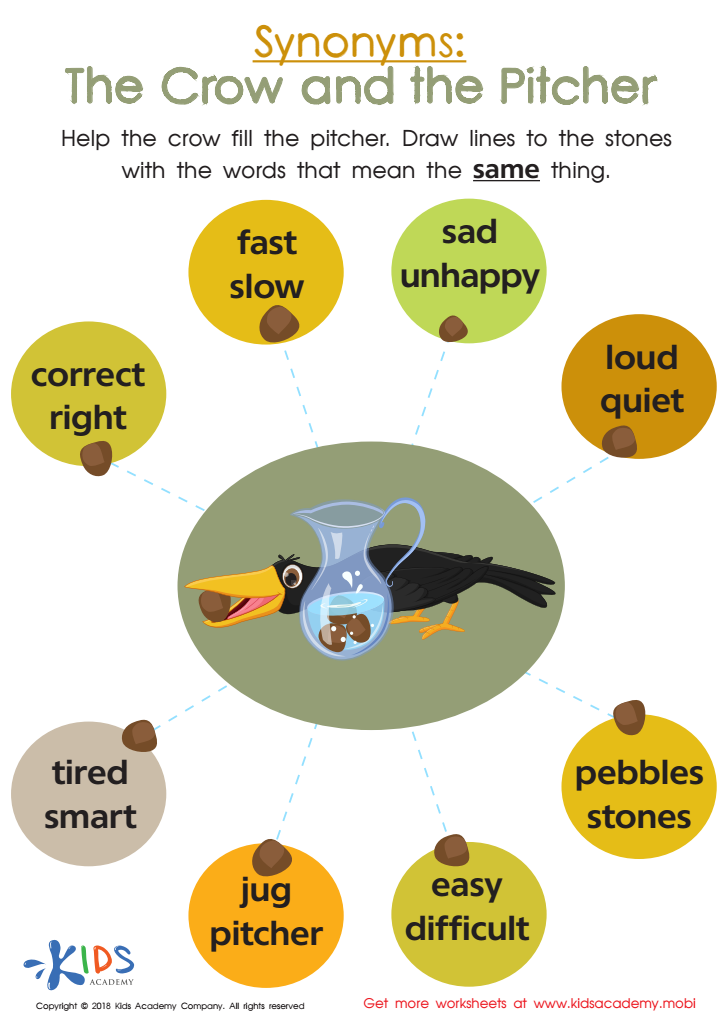

The Crow and the Pitcher Synonyms Worksheet
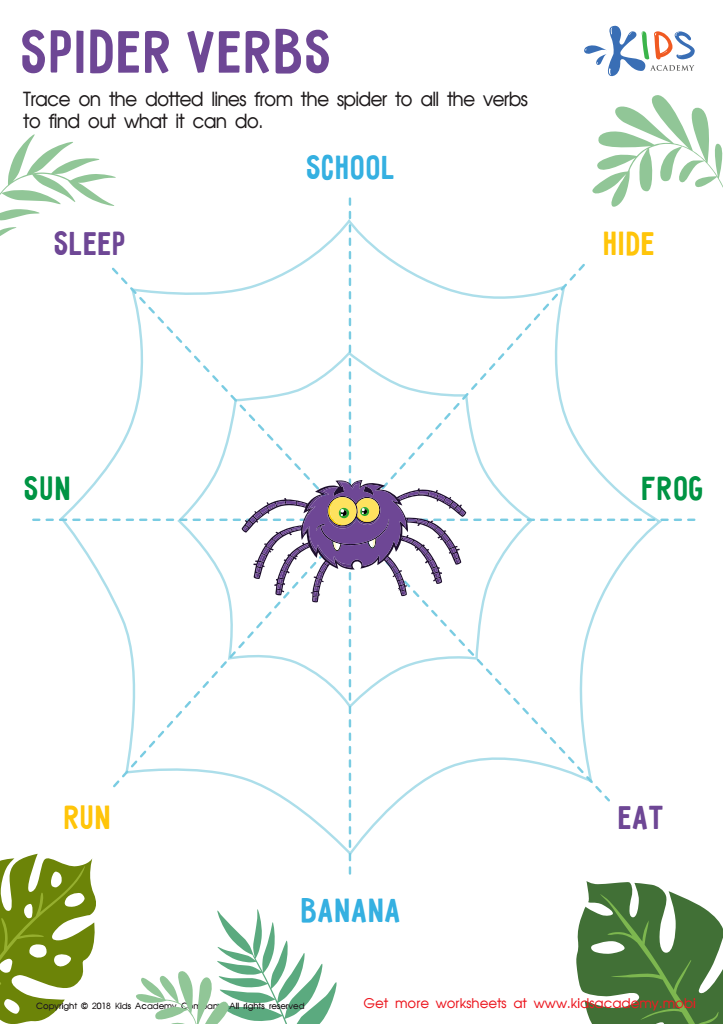

Spider Verbs Worksheet
Vocabulary development is crucial for children aged 3-9 as it lays the foundation for effective communication, reading comprehension, and overall academic success. At this stage, children are rapidly acquiring language skills, and a rich vocabulary enhances their ability to express ideas, emotions, and questions. Parents and teachers should prioritize vocabulary development because it directly impacts literacy skills; proficient vocabulary enables children to decode words while reading and promotes better understanding of texts.
Investing in vocabulary development fosters critical thinking and creativity. Children with diverse vocabulary are better equipped to describe their thoughts, engage in discussions, and articulate their feelings, which boosts self-confidence. Moreover, a strong vocabulary is linked to improved social skills, as children learn to navigate conversations and interactions with peers and adults.
Incorporating vocabulary-rich activities, such as storytelling, singing songs, and engaging in word games, not only makes learning enjoyable but also promotes a love for language. Regular exposure to new words in various contexts encourages children to explore language actively. Ultimately, when parents and teachers support vocabulary development, they equip children with essential tools for lifelong learning, enabling them to thrive academically and socially in a rapidly changing world.
 Assign to My Students
Assign to My Students



.jpg)













